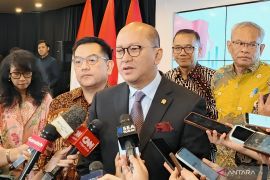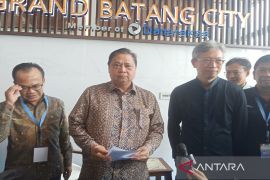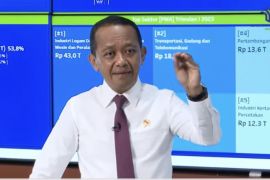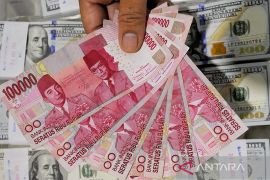Realization of investment in the period was up 13.7 percent to Rp176.6 trillion from the same period last year at Rp155.3 trillion, according to Capital Investment Coordinating Board (BKPM) here on Monday.
"Realization of domestic investment in the third quarter of 2017 reached Rp64.9 trillion, while foreign investment reached Rp111.7 trillion," BKPM deputy for control of implementation of capital investment Azhar Lubis stated.
Therefore, from January to September 2017, the realization of investment reached Rp513.2 trillion, consisting of Rp195.7 trillion domestic and Rp318.5 trillion foreign investments, or 37.9 percent and 62.1 percent, respectively.
"In cumulation realization of investment from January to September 2017 has reached 75.6 percent of the target set at Rp678.8 trillion for 2017," he noted.
Realization of investment in the third quarter absorbed 286,497 workers, consisting of 109,711 in domestic investment projects and 176,786 in foreign investment projects.
"The figures showed that investment played a role in creating employment for the people," he remarked.
BKPM recorded the realization of investment in Java in the third period to have reached Rp101.1 trillion, while it was at Rp75.5 trillion outside Java.
Compared to the same period in 2016, realization of investment in Java rose by 15.4 percent, while it was at 11.5 percent outside Java.
In cumulation, realization of investment outside Java from January to September 2017 was recorded at Rp230.4 trillion (44.9 percent), while in Java, it was recorded at Rp282.8 trillion (55.1 percent).
According to BKPM chief Thomas Lembong, the investment growth showed that the economic transformation launched by President Joko Widodo has begun to work meaning that consumption had shifted to production as well as investment.
"The shift from consumption to production and from consumption to investment has been clearly seen," he revealed.
Although investment growth in the third quarter was weaker compared to the first semester, Thomas stated that it was normal in view of the strong growth from the start of the year and also because of external influence.
"I think the strong growth in the first and second quarter was because of the success of tax amnesty program and the upgrading of rating by S&P. This was the base for comparing them. I think the trend from quarter to quarter is subject to fluctuation," he concluded. (*)
Editor: Heru Purwanto
Copyright © ANTARA 2017











